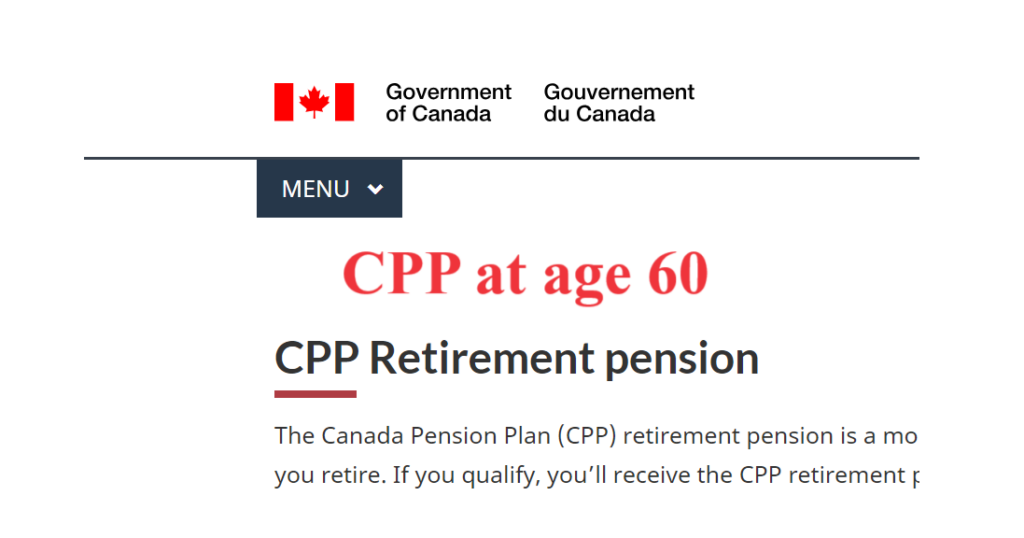Canadian retirement income system: When to begin receiving benefits from the Canada Pension Plan (CPP) is an important decision, since it offers vital financial support during retirement. Although it comes with a lower monthly payment, receiving CPP at age 60 is a possibility, even though most people wait until the normal age of 65. So, is it appropriate for you? Here are seven compelling arguments for starting your CPP at age 60:

- Instant Income Boost: You may require income immediately if you take an early retirement or experience unanticipated financial hardship. Commencing CPP at 60 offers instant cash flow to close the difference or enhance other funding sources.
- Reduced Life Expectancy: Enrolling in CPP early guarantees that you will get greater lifetime benefits if your life expectancy is shortened as a result of health issues or family history.
- Enjoying Your Retirement Early: By beginning CPP at 60, you’ll have more time to travel, engage in hobbies, or just unwind in your golden years.
- Supplementing Other Income: By beginning CPP early, you can add an extra safety net to your income, enabling you to save for other objectives or spend more freely if you have retirement savings, a pension, or other sources of income.
- Investment Flexibility: By taking early CPP benefits, you may be able to invest money that would otherwise go toward contributions in possibly higher-growth assets before you retire.
- Reducing the burden of the Old Age Security (OAS) Clawback: If you begin CPP at age 60, you may be able to lessen the burden of the OAS clawback in the future if you are a high earner.
- Peace of Mind: For some people, especially those whose other retirement plans are uncertain, the guaranteed income from CPP at 60 provides much-needed peace of mind.
Securing your future: Understanding the Canada Pension Plan (CPP)
The Canada Pension Plan (CPP) forms a key part of Canada’s retirement income system, offering financial security to working Canadians nationwide (excluding Quebec, with its own similar plan). Think of it as a safety net replacing a portion of your income when you retire, become disabled, or pass away.
Who contributes?
Most working Canadians, including self-employed individuals, contribute to the CPP automatically through payroll deductions. These contributions are based on your earnings within a specific range, ensuring both fairness and sustainability.
What benefits are offered?
The CPP offers several benefits:
- Retirement pension: Available from age 60 onwards, with the amount adjusted based on your chosen retirement age. Early retirement means a slightly lower monthly benefit, while delaying retirement increases it.
- Disability benefits: Provides financial support if you become permanently disabled before retirement.
- Survivor benefits: Offers financial assistance to your spouse or dependent children if you pass away.
Remember:
- Quebec residents: This information applies to all provinces and territories except Quebec, which has its own separate pension plan called the Quebec Pension Plan (QPP).
- Planning for retirement: While the CPP plays a vital role, it’s essential to consider additional savings or investments for a comfortable retirement. Consult financial experts for personalized guidance.